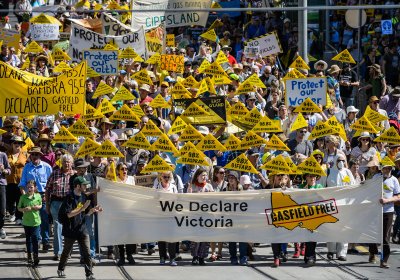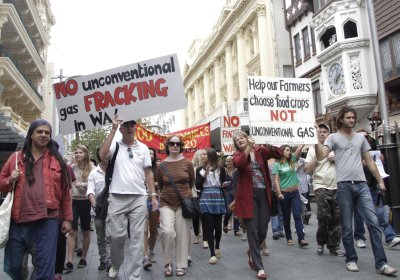On March 7, Victoria became the first state in Australia to permanently ban hydraulic fracturing (“fracking”), the dangerous process used to mine unconventional gas. This important victory sets the stage for other states to follow.
The Victorian government has also decided to extend the moratorium on onshore conventional gas drilling until June 30, 2020.


 Fracking in the Vaca Muerta shale reserves.
Mapuche Indigenous communities in the Argentine Patagonian province of Neuquen have denounced fracking in the Vaca Muerta shale reserves, which they claim are contaminating their land and groundwater, killing their livestock.
Fracking in the Vaca Muerta shale reserves.
Mapuche Indigenous communities in the Argentine Patagonian province of Neuquen have denounced fracking in the Vaca Muerta shale reserves, which they claim are contaminating their land and groundwater, killing their livestock.





 With scores of anti-fracking protesters outside, the Australian Labor Party Northern Territory conference voted on February 13 to approve a moratorium on any development of the fracking industry while critical scientific studies on its impacts are carried out.
With scores of anti-fracking protesters outside, the Australian Labor Party Northern Territory conference voted on February 13 to approve a moratorium on any development of the fracking industry while critical scientific studies on its impacts are carried out.
